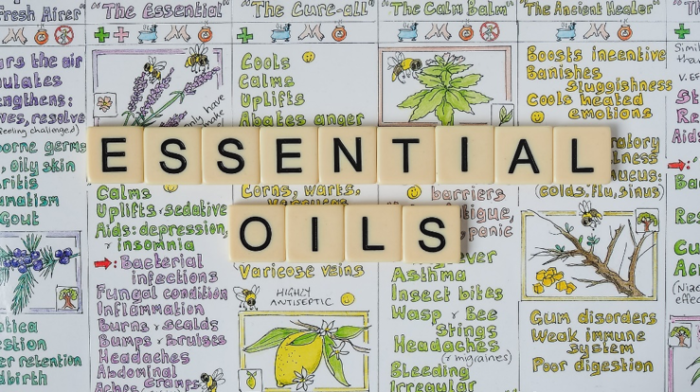Problems in the Aromatherapy Industry
Jane Lawson, our Aromatherapy SME, has some strong opinions on Aromatherapy worldwide as well as issues in the UK

Jane has been a Clinical Aromatherapist for over 25 years and a teacher for over 17 years. She studied under Irene Latter, Principal of the then Scottish School of Aromatherapy who had been taught by two of Marguerite Maury’s former students. In addition to other therapies, she studied Reflexology and Polarity therapy with Douglas Bell at his Scottish School of Reflexology.

A friend from over The Pond asked me to write an article about the differences in the Aromatherapy Industry worldwide. You see, there are two major problems…
#1 Aromatherapy means different things in different countries, notably UK, France (Europe) and US.
#2 There is a growing call for worldwide standardisation in training and qualifications, because of #1.
I am going to make this clear from the start; I am not in favour of standardising Aromatherapy across the board. I am however very interested in raising the standards in UK Aromatherapy back to a level it was at when I did my training. So I shall explain beginning with #1.

First off, Aromatherapy in the UK (colloquially known as English Aromatherapy in the industry) includes massage, usually Classical Massage, or Swedish Massage as it is more commonly known.
In the US, Canada etc, you have to study massage separately/over and above your Aromatherapy studies, and get licences by your local state, if you so choose. Without the massage it is what we call an Essential Oil Practitioner here in the UK – although that would be at Clinical level in the US.
In France/EU (colloquially known as French Aromatherapy in the industry), Aromatherapy is often administered orally/internally but only by qualified medical practitioners or those who have studied what we now call Aromatic Medicine. They do have traditional Aromatherapists as well much on the same lines as Aromatherapists in the UK.
Our friends in Australia and New Zealand pretty much follow English Aromatherapy too.
We then move up to Clinical Aromatherapy. In the UK, Clinical Aromatherapy involves the study of a whole heap more (more than twice the number of Essential Oils at Aromatherapy level) of Essential Oils, carrier oils, hydrosols, one if not two more massage techniques, another therapy (my syllabus includes Reflexology that meets the Reflexology core curriculum), baby and child massage (actual hands on the child), energy work and a look and understanding in more depth of pregnancy, the elderly, learning difficulties etc. So, basically the same as Clinical Aromatherapy in other countries but with a whole heap more hands on as well.
English Aromatherapy comes very much from an ‘art’ base and looks to the energetics of Essential Oils, certainly at Clinical level. American Aromatherapy comes more from a ‘science/chemistry’ base, and French Aromatherapy from a background in herbalism or plant medicine. As long as people understand these differences, there is no issue, and at the end of the day for the lay person, they will only be interested in what the differences are between an Aromatherapist or a Clinical Aromatherapist in their own country.
Each form of Aromatherapy has its merits and strengths, and thanks to the internet all three can learn from the other, and expand on each other’s knowledge. I see all three ‘types’ as specialists in their own field of Aromatherapy. To bring them together under one standardised protocol would be of huge detriment to the industry as a whole, and quite frankly would be nigh on impossible to be agreed upon. Can we please drop the ‘our Aromatherapy is the only Aromatherapy’ jibes please?
Which brings me nicely into the second point in more detail from a UK perspective.
When I first qualified 30 years ago, I worked alongside/in my local Drs practice. Every Dr there had to have some sort of Complementary Therapy under their belt. They just didn’t have a Clinical Aromatherapist, which is where I filled the gap. They would never have accepted me as just an Aromatherapist. It’s what we call Integrated Medicine, which is where I have always believed health care should be at, and having a ‘foot in both camps’ as it were, is where Clinical Aromatherapy sits here in the UK. Or at least it used to 20-30 years ago.

I have tried explaining the different levels in Aromatherapy training here in the UK over the years like this. A Holistic Aromatherapist who uses pre-blends is like going to see the Practice Nurse at the Dr’s surgery. An Aromatherapist is like seeing your GP. A Clinical Aromatherapist is like seeing the Dr at the hospital. An Advanced Clinical Aromatherapist is like going to see the Specialist/surgeon in hospital, the ones you call Mr and not Dr here in the UK.
The levels of difference will be different again depending which country you live in.
The problem over the years here in the UK is, and I have seen it with my own school, people qualify as Aromatherapists and then that’s it, they don’t go on to study Clinical Aromatherapy. Ten years ago, and prior to that almost all my Aromatherapy students would go on to study Clinical Aromatherapy. Over the years since, I have to say, the standards have dropped in Aromatherapy. Has this been due to the colleges of further education starting to teach Aromatherapy as a ‘bolt on’ to beauty therapy and then extending their courses to holistic therapy? Have the standards dropped because of online ‘certification’? I suspect it’s a bit of both.
Yes, there are plenty of CPD courses to increase your knowledge of more oils, yes there are Post Graduate Certification programmes and other complementary modalities you can take to add to your repertoire of therapies, but those alone do not make you a Clinical Aromatherapist. It is a whole different way of application and understanding of how, when and why to use oils, and yes even in the UK the internal application of Essential Oils is covered. Aromatherapy is the ‘nuts and bolts’, the basics of practice. Clinical takes it to a whole new level. Over the years, I have seen Clinical Aromatherapy being eroded down to the same standards as Aromatherapy in some schools, how did that happen? Since when could an Aromatherapist suddenly be allowed to call themselves Clinical Aromatherapists without the further hundreds of hours of study? Do they not realise that Clinical Insurance is a higher level?
So, to summarise both problems. Yes, there are three approaches in the practice of Aromatherapy, and each one needs to respect and learn from the other. I have Aromatherapy friends all over the world who all come from different approaches. If I want to check out the latest chemistry GC/MS of an oil, I know who to contact. In turn I have my science aromatherapy friends turning to me for help with the underlying emotional/mental root cause of a physical issue, because addressing the physical alone is not enough.
We can’t all be put together under one standardised umbrella of training otherwise we will all become like proverbial sheep singing from the same hymn sheet with no room for thinking ‘outside the box’ and exploring possibilities and new solutions, because protocols and standards set will not allow us!
As to UK Aromatherapy. The UK is in great danger of falling well behind the standards of the US and French Aromatherapy and from what I can see, and am constantly battling with, it already has, to be honest. It’s about time us in the ‘private’ sector of training pulled up our socks, put on our ‘big girl knickers’ and levelled back up to become the world leaders we once were in the field of Aromatherapy!!!
Watch this space, I am on a mission, I will not allow the art of English Aromatherapy to be lost and killed off because of the melting pot of the internet. All three types of Aromatherapy application and usage make up the smorgasbord that is Essential Oils.